Bugalwan’s early journey to stronger community wellbeing
With a name meaning ‘be well’ in Bundjalung language, Bugalwan Indigenous Corporation calls on culture and traditions to innovate and improve mental health care for First Nations people. While still in its early stages, the corporation’s board is responding to challenges by pivoting when needed, learning from experience, and looking after its people as it grows.
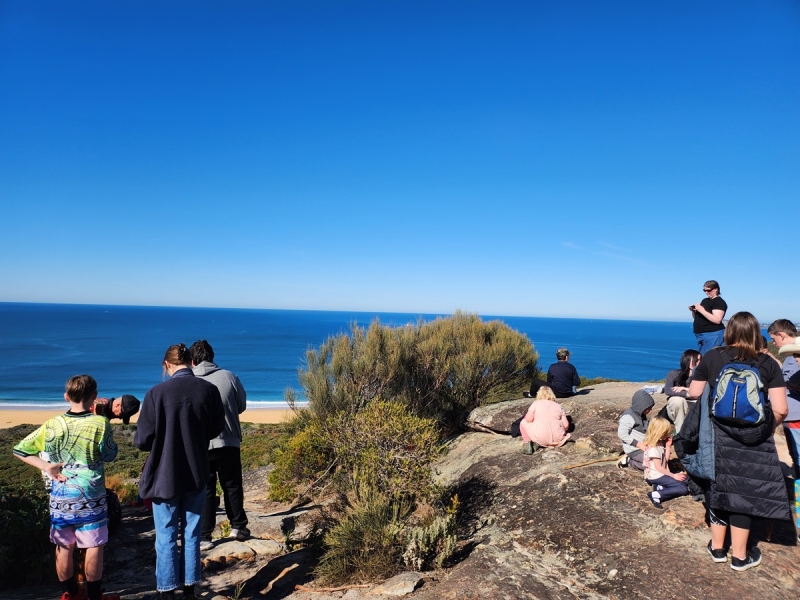
Response to the need for healing
Bugalwan started a year ago from a desire to provide mental health and wellbeing services in a more accessible and culturally responsive way. Chairperson Matthew Craig already owned a psychology clinic. He had also visited other wellbeing services as part of his personal health journey.
Seeing long waitlists and clinical service models that lacked self-determination, Matthew saw the opportunity to create a service grounded in culture and traditions – one that would be an accessible, safe space to open up and explore the pathways to stronger mental health.
Matthew met Bugalwan’s eventual co-founder and other director, Charles Sales, at a men’s group. The decision to start Bugalwan came years later, in the lead-up to the 2023 referendum. Together, they thought about what could be done to create services that build strength in identity for younger people during a challenging time.
‘There was a lot of hurt being done and a lack of pride because of the normalisation of racism after the referendum,’ says Matt. ‘People were not identifying [as Indigenous] anymore. Charlie and I thought, let’s get back into culture.’
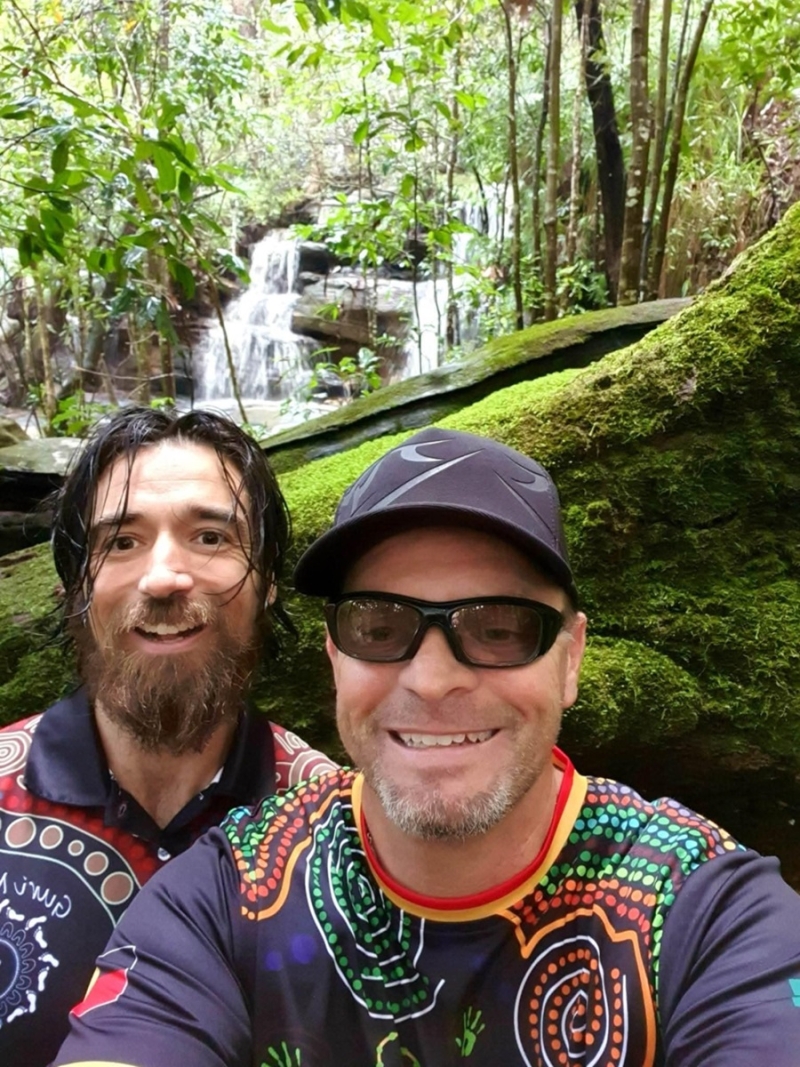
Matthew Craig (L) and Charles Sales (R)
Preparing to pivot
As a psychology business owner with an MBA, Matthew had ideas for how to run a business and deliver mental health services. His and Charles’s lived experience led them to push the bar of mental health service delivery.
‘Through the men’s group, we started yarning about our own mental health journeys. But it’s hard for us to open up to people,’ Matthew says. ‘There are some amazing local organisations doing awesome stuff but they have long wait times. So what can we do differently? Rather than what’s wrong, how can we make it right?’
Matthew saw an opportunity to change service delivery – from the clinical to a culturally responsive environment.
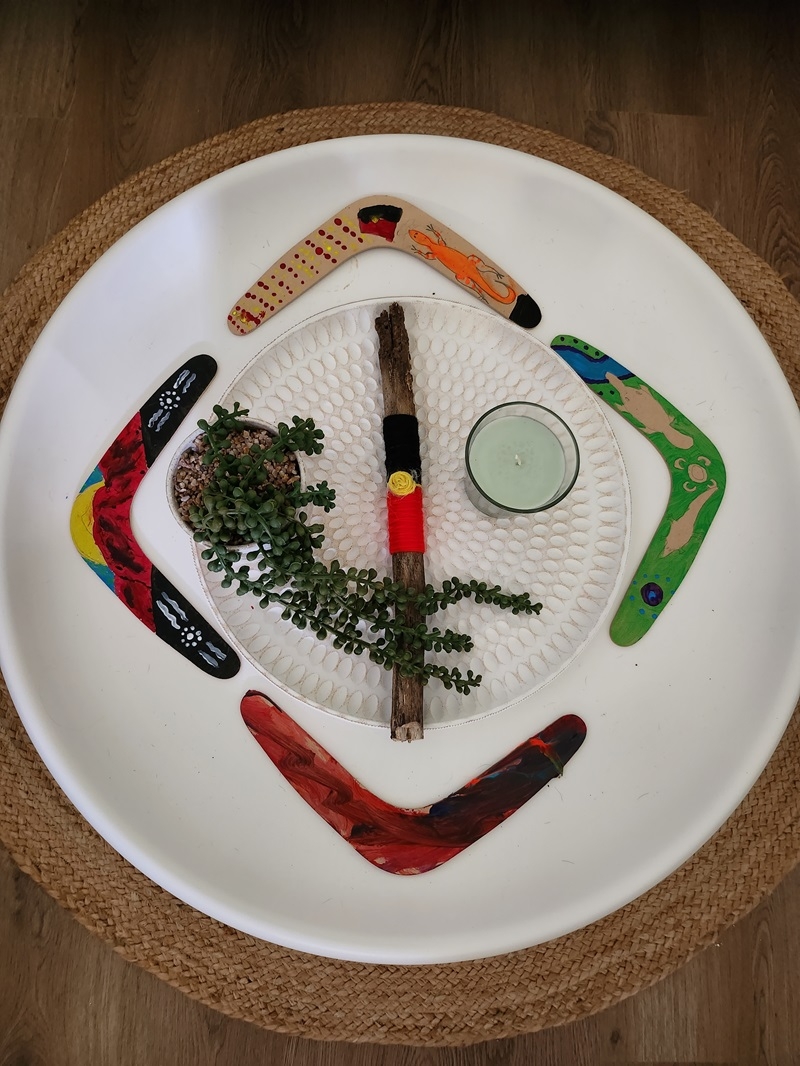
‘It needs to be better than the clinical,’ says Matthew. ‘A GP will give 8 one-hour sessions to build rapport, trust, share intimate details – it just doesn’t work for mob.
‘We want to sit there, have a deep yarn, and we won’t get into the issue until 1.5 to 2 hours in. Or we might have 10 sessions and there are weeks in between and new things popped up.’
Open to advice
Matthew and Charles consulted with the corporation’s members and people at services they went to, worked with and volunteered at, to set up Bugalwan as a corporation. But getting the funding was a new skill to learn.
‘I started looking into this area of grants, and that was hard. Charles and I are pretty computer literate. We can put ideas onto paper. But the red tape was difficult. Someone connected me with a grant writer, which helped.
‘An Aboriginal partnership manager looked at a proposal that wasn’t successful. She made a beautiful suggestion – maybe where it could be improved is that you’re trying to save everyone in that one. Instead, treat it like a pilot study.’
Bugalwan took the advice into its first funded activity: a camp to empower young people.
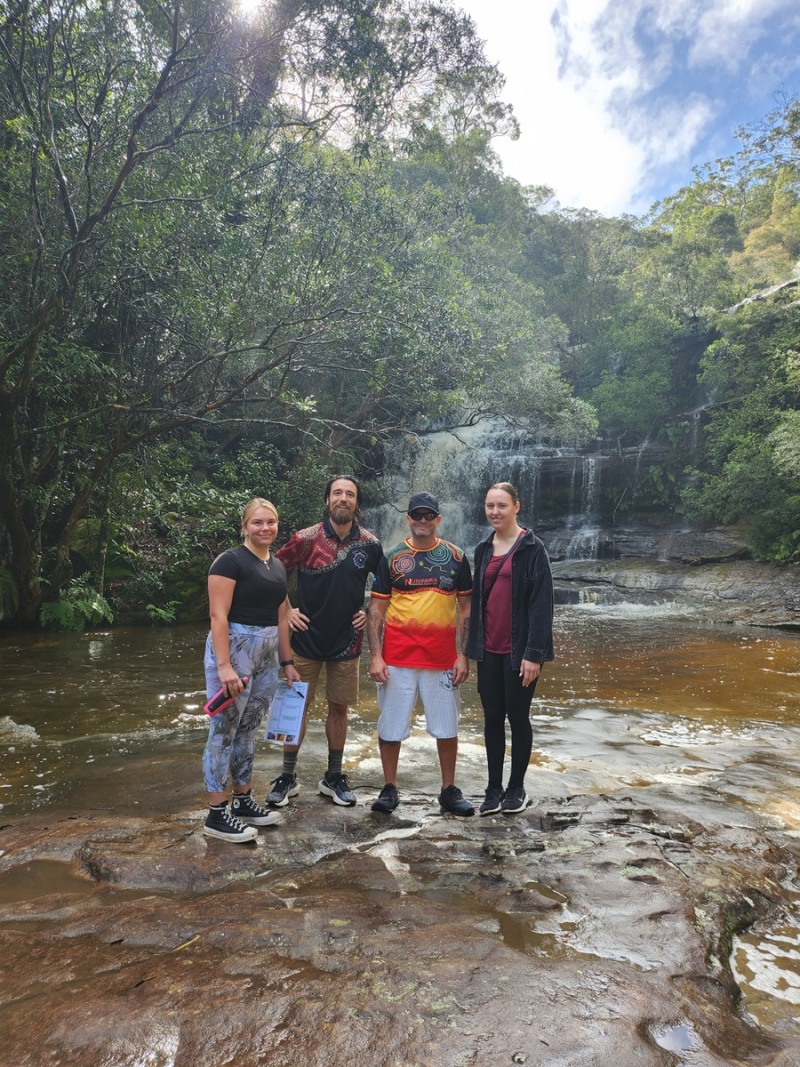
Charlie and Matthew with volunteers
Empowering with evidence
To show the impact of the camp activity and Bugalwan’s other work, the team set up ways to measure their time and outcomes. As well as evaluating the youth activity this set up evidence for future funding proposals.
‘For the funding we had to submit reports using photos from the camps,’ says Matthew.
‘I keep a spreadsheet for how long it takes me to do things to put into proposals. We’re making a difference, but that’s our time we’re not being paid for.
‘I get some pre- and post-intervention measures. I show the score before, and the score after. Then complement that with pre- and post-qualitative interviews. I use that as a pilot to then gather the evidence. I have anecdotal evidence, but this will give hard evidence to get the funding.’
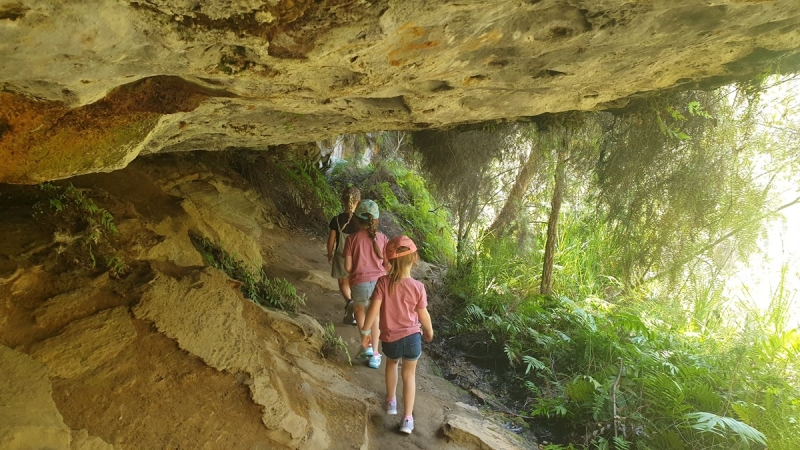
Growing sustainably towards their goals
Bugalwan is still in its early stages and building towards reaching its goals. For the moment, Matthew is volunteering services from his clinic.
‘For people, when they’re in the state of psychological distress, it’s hard for them to get anywhere. I use whatever they can access – Zoom, phone call… I even used Facebook messenger once!’ Matthew says.
After winning the Tracey Westerman Indigenous Psychology Scholarship, Matthew looked at ways to upskill non-Indigenous allies to make care more accessible and culturally responsive.
‘There are only 250 registered Aboriginal psychologists in Australia,’ Matthew says.
‘I know from my experience, it’s hard to open up. But when I’m sitting next to a brother or sister – it’s easier to open up. It’s about making this easier with allies.’
As Bugalwan grows, the directors are working on ‘not to trying to do everything, all at once’. One piece of advice Matthew passes on in setting up a new corporation: it’s important to also look after yourself.
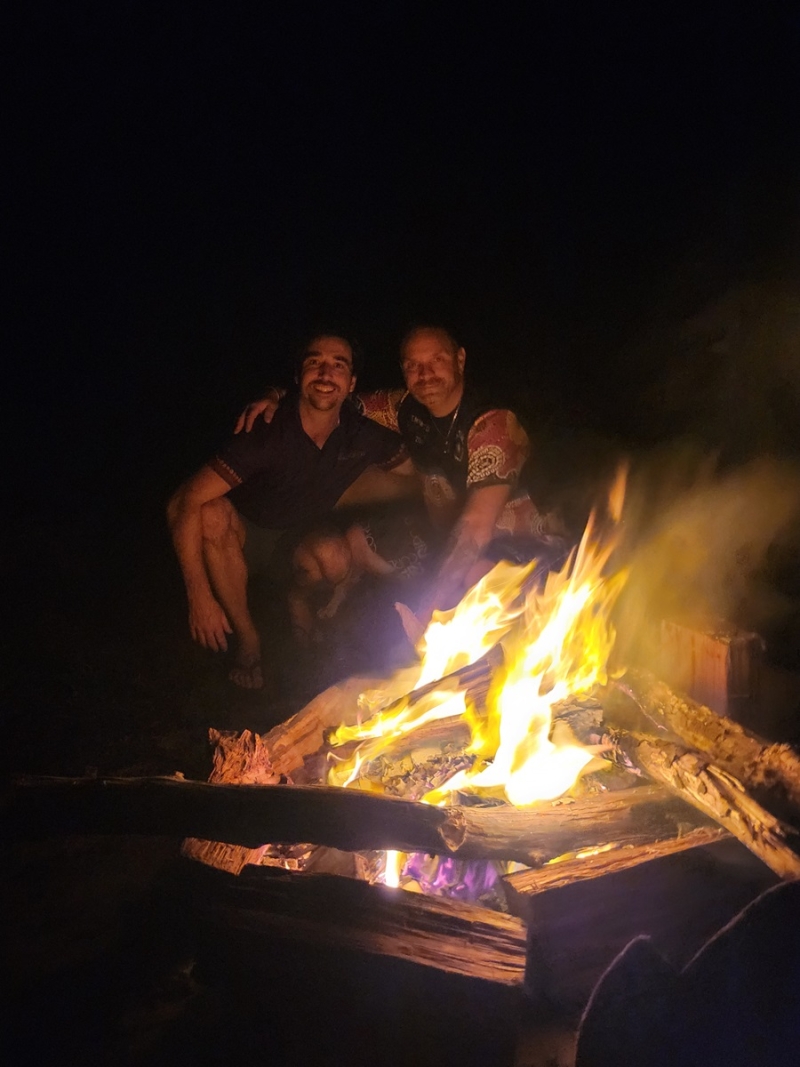
Matthew and Charlie take some time out
‘We’re doing everything as volunteers at the moment,’ Matthew says. ‘We reach out to patients I see and let them know Bugalwan is there to keep yarning with them afterwards. I know that what I do can support them into the future.
‘But I have to practise what I preach in terms of self-care. We sink absolutely everything into these things, especially when it’s pro bono. It’s consuming time that you could be with your family, and something can eventually give. I think pausing, taking the time for self-care, can help you deliver long-term and sustainable outcomes.’
While managing this growth in a sustainable way, Matthew hopes to keep building the connections that will help Bugalwan deliver on its goals. By making these connections Bugalwan can build its profile and reach, advocate for more culturally responsive mental health, and be the ones who can deliver it.
‘We’ll attend public health network grants meetings. We’ll connect with politicians so they start to listen.
‘Bugalwan’s overall objective will be to be self-sufficient and not running on pro bono. We want to get the funding to do this and pivot towards sustainability. To be self-determined. To not adjust ourselves to suit the western narrative and to do it our way.’